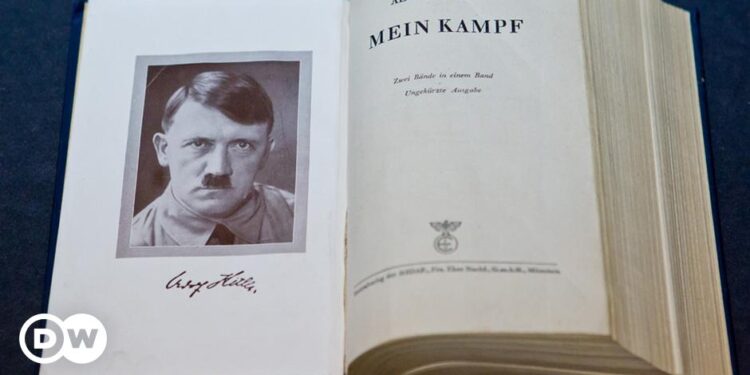Mein Kampf, written by Adolf Hitler during his imprisonment in the 1920s, remains a controversial and influential book that provides insights into Hitler’s ideology and the foundations of his beliefs.
At its core, Mein Kampf is an autobiographical manifesto in which Hitler outlines his political and racial views. The book reveals his intense anti-Semitism and belief in Aryan racial superiority. Hitler propagates the idea that Jews were responsible for Germany’s economic and social problems, and he advocates for their exclusion and eventual eradication from society. Mein Kampf also articulates Hitler’s desire for Lebensraum (living space) for the German people through territorial expansion.
Beyond his anti-Semitic beliefs, Hitler expresses his disdain for democratic systems and advocates for the establishment of a totalitarian state. He promotes a leadership structure centered around a strong, charismatic leader who possesses absolute power. Hitler’s ideas gained traction among segments of the German population who were disillusioned with the fragile Weimar Republic and its inability to address the country’s pressing issues.
Mein Kampf is not only significant for its content but also for the insight it provides into Hitler’s political strategies. The book reveals his adeptness at employing propaganda techniques, manipulating emotions, and constructing a narrative that resonated with many Germans during a time of economic hardship and societal instability. By exploiting the frustrations and hopes of the German people, Hitler gained support and laid the groundwork for his eventual rise to power.
Although Mein Kampf is widely condemned today due to its hateful and genocidal ideologies, studying the book can help us understand the factors that contributed to Hitler’s actions and the catastrophic events of World War II. It serves as a chilling reminder of the consequences of unchecked hatred, the dangers of extremist ideologies, and the importance of actively combating prejudice and intolerance in our societies.
In conclusion, Mein Kampf offers valuable insights into Adolf Hitler’s ideology, including his anti-Semitism, racial theories, and political strategies. While its content is deeply disturbing, comprehending the origins of Hitler’s beliefs can contribute to our understanding of the past and reinforce the importance of fostering inclusivity, compassion, and respect for all individuals in our present and future.
newshub



Recent Comments